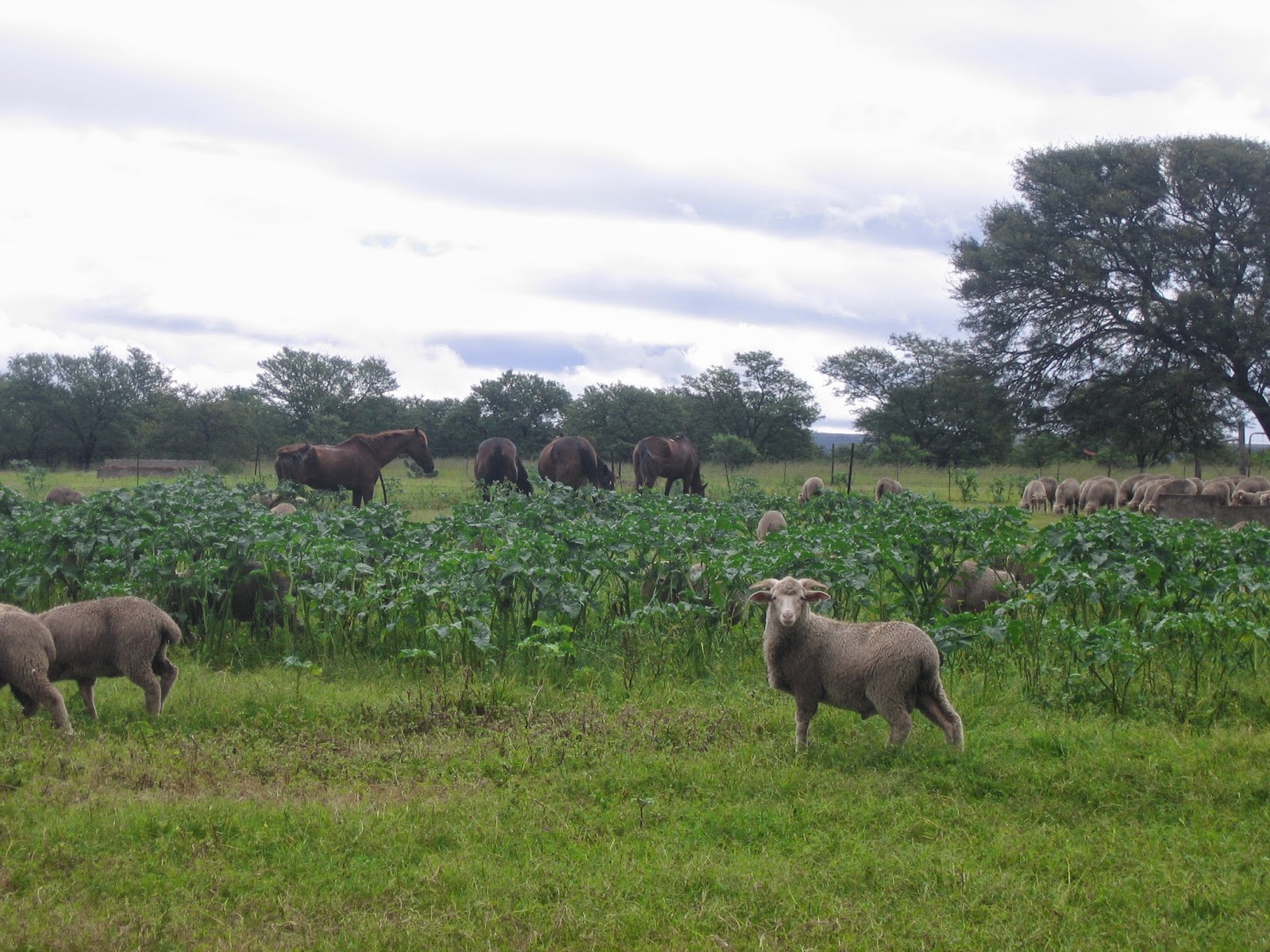Extra care in
the two months prior to mating leads to higher fertility.
More lambs,
means more money in your pocket, but also leads to a better utilization of the
ram`s genetic potential.
Although rams
are the most expensive sheep on the sheep farm, they are often neglected.
Various
articles have been written on the care and nutrition of rams. Emphasis is
placed on ram fitness, and yet very few farmers exercise their rams before the
mating season.
Pro-active or
preventative medicine requires that certain management procedures are done in
advance to ensure that the animals are healthy and in a good “working”
condition when peak performance is required. In a ram this is at mating time,
or during the breeding season.
It is
important to understand the physiological processes taking place in a ram`s
body, in order to understand why it is important to do certain procedures well
in time.
Spermatogenesis
and the maturation of sperm cells in the testes and epididymis is a process
that takes roughly 60 days (2 months) to complete.
Sperm are
stored in the testes at 32°-34°C – more or less 6°C lower than body
temperature.
The warm blood
coming from the body is first cooled down by a very intricate mechanism, where
the warm blood runs in arteries in close proximity to the veins with cooler
blood coming from the testicles. The cooler blood is then cooled down further
in small blood vessels running close to the external surface of the scrotum,
before moving into the testes to deliver the necessary oxygen and nutrients for
spermatogenesis.
Disease and
subsequent fever reactions, as well as even the slight fever encountered after
vaccinating with live vaccines, can cause the semen to “overheat”, leading to
temporary infertility. Conditions like blowfly strike or foot rot might cause a
slight fever reaction. The sperm are then not all killed, but undergo certain
changes that effect fertility. A proper semen analysis, in which special attention
is given to sperm morphology, is necessary to identify the presence or absence
of these “abnormalities”.
On the day a
farmer introduces the rams to the ewes, he should ask himself the following
question:-
“Did I do
everything possible to ensure that these rams deposit the best possible sperm
cells into these ewes?”
Note to reader: Some of these are repeats of previous two blogs, nevertheless see the repetitions as priorities!
-
Ensure a good spread of young and old rams by
replacing 25% of the ram flock yearly. In this way you will always have a good
balance between younger, virile rams with a high libido, and older rams with
lots of experience.
-
-
Shear rams regularly. Preferably every 6 months in
wool breeds.
-
-
Do proper hoof care. Trim hooves before the mating
season and treat cases of foot rot as early as possible.
-
-
Give a balanced ration – especially in the two month
period prior to mating when sperm cells are formed.
-
-
Get rams fit by walking them briskly for a minimum of
half an hour early in the morning or during the late afternoon.
-
-
Supply adequate shade, especially in the warmer parts
of the country.
-
-
Give the broadest possible protection against diseases
by vaccinating you protect your rams against Pulpy kidney and other Clostridial
diseases, Pasteurella, as well as against Corynebacterium infection (“cheesy
gland”) - three very important sheep disease complexes.
-
-
Additional vaccination against Bluetongue and
Brucellosis is also recommended.
-
-
Dose / deworm preventatively. A sick or parasitized
ram cannot produce top quality semen. It is also necessary to treat animals
preventatively before the mating season against nasal bot, as scent plays an
important role in feed intake as well as in the detection of the ewes that are
on heat.
-
This
entails a proper clinical check-up to certify the ram as healthy and free of
disease. It should also include a detailed examination of the genital organs, a
semen analysis which includes sperm morphology as well as certifying the semen
free of infection (the absence of bacteria and white blood cells).
-
Breeding soundness should also include a mating
dexterity test. It does not help if a ram has good semen and good genetics, but
is unable to carry it on to its progeny because it cannot serve a ewe!!!





















0 comments:
Post a Comment